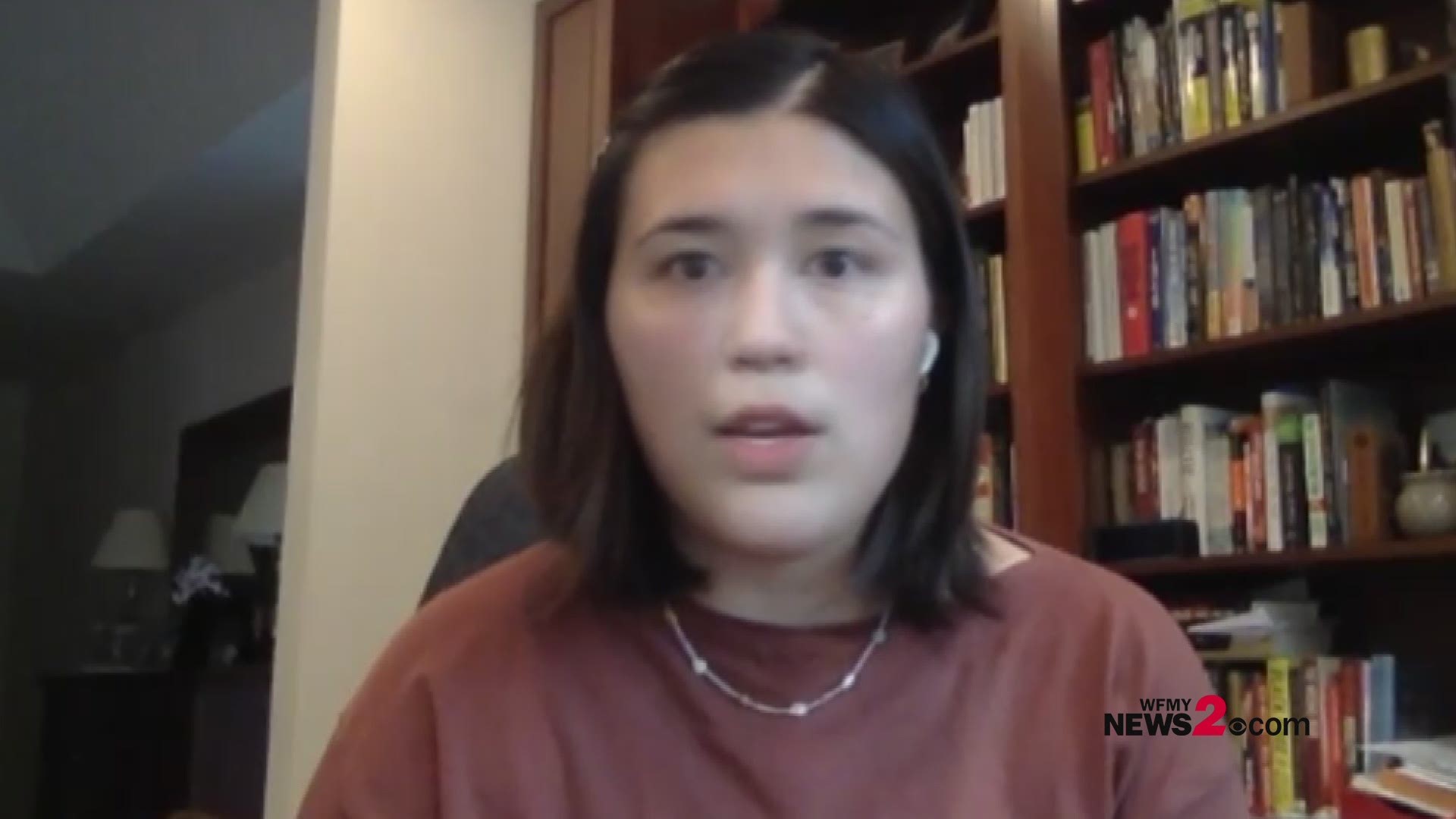NORTH CAROLINA, USA — While medical professionals like doctors and ICU nurses are hard at work in the hospital helping patients through the battle of COVID-19, contact tracers and case investigators are trying to stop the spread of it.
But like many others, contact tracers are feeling the pandemic fatigue, too.
As cases continue to spike, contact tracers and case investigators try to keep up with the caseload.
"It has been a lot to adjust to this new caseload," said Contact Tracer Erin Albertini. Albertini is also the assistant regional supervisor for region 3 of the Carolina Community Tracing Collaborative.
"We're very fortunate to have a fantastic team of case investigators, contact tracers, and leaders working on this contact tracing initiative for us. But it has been a huge increase in cases and so we're having to make a lot of adjustments," said Albertini.
Normally, the people doing the tracing will check in daily with their cases and contacts to see how they're doing, but with the case increase, Albertini said they can't do that as frequently.
"We just don’t have the hands to kind of connect with people on a day to day basis," she said.
Albertini said they're seeing the virus spread the most in social gatherings.
"One really good example of this is after Halloween we saw a significant increase in spread amongst young adults after we had some Halloween gatherings that exceeded the recommended size," she said.
Albertini said they fear that spread to continue as the holiday season goes on.
North Carolina Department of Health and Human Services updates the state website with cluster information.
The state's data says cases associated with clusters in religious gatherings have remained steady for the last month.
Very few of the state's cases stem from restaurants, bars, and shopping centers.
The highest number of cases stem from workplaces like meat and poultry processing, a majority of those cases spiking back in April and May.
The next largest case category is colleges and universities, with 200 reported clusters, and 2,642 cases associated with those clusters.
Religious gatherings rank next for the category with the most spread, with 121 clusters and 1,618 cases associated with those clusters.
This data dates back to the beginning of the pandemic in North Carolina.
Albertini said they've requested more contact tracers and case investigators from the state, but she knows the need is widespread with caseloads going up across the state.
Albertini said calls from contact tracers and case investigators will come from a phone number with either the area code of 844 or 336 if you're in the Triad. If the number doesn't have either of those area codes, it's likely not a contact tracer.
As the spike in cases continues, Albertini said her coworkers are trying to push through.
"I know that I as well as many of our other staff members are dealing with burnout and covid fatigue just like the rest of the community is," she said, "Case investigators and contact tracers that are working this initiative they live and breathe COVID every day. Their entire workday revolves around the mitigation of COVID-19."
A lot of times, Albertini said contact tracers need a moment to regroup from a tough phone call.
"If you start to develop relationships with your cases and your contacts and something unfortunate happens with that person, it can be really emotionally draining," she said, "It's really hard to do this work every day and not get tired out and to feel that burnout. We're definitely feeling the strain especially in the increased caseload on our end."
Albertini said it's important to pick up the phone and talk with a contact tracer and case investigator if they call.
"Our priority is making sure you are safe," she said, "Some of the exposures are happening within a household and some of the people, you'll call them and they're like, 'Oh yeah, I know I've been exposed.'"
But other times, Albertini said contact tracers catch people by surprise.
"Sometimes even recently kind of, with community COVID fatigue, people are kind of not as willing to accept what we have to tell them and some people have been in denial," said Albertini.
"We really need community members to know we’re working for you and we want to help you. Even in the hardest of times, we're going to be here to support you," said Albertini.
Guilford County Health Department Community Nursing Services Manager Susan Hawks said they're very busy case investigating and contact tracing, too.
"With the 70 staff there are 30, approximately 35 of us that are public health working within Guilford County Public Health," said Hawks, "We have the Carolina Community Tracing Collaborative helping us as well and that gets us to around 70."
Hawks said as families come back from the holidays, spread through family gatherings is more likely.
"Now that it's been approximately a week and some of those cases are coming to us as family gatherings and so we try to make the links there," said Hawks.
Hawks is asking that people answer the phone if a number comes in that could be a contact tracer, as they work to keep up with the caseload.
"We actually are currently training more of our staff to assist within public health and we have asked the tracing collaborative to provide more assistance as well so I know they are in the process of bringing them on board and keeping them trained," Hawks said.

